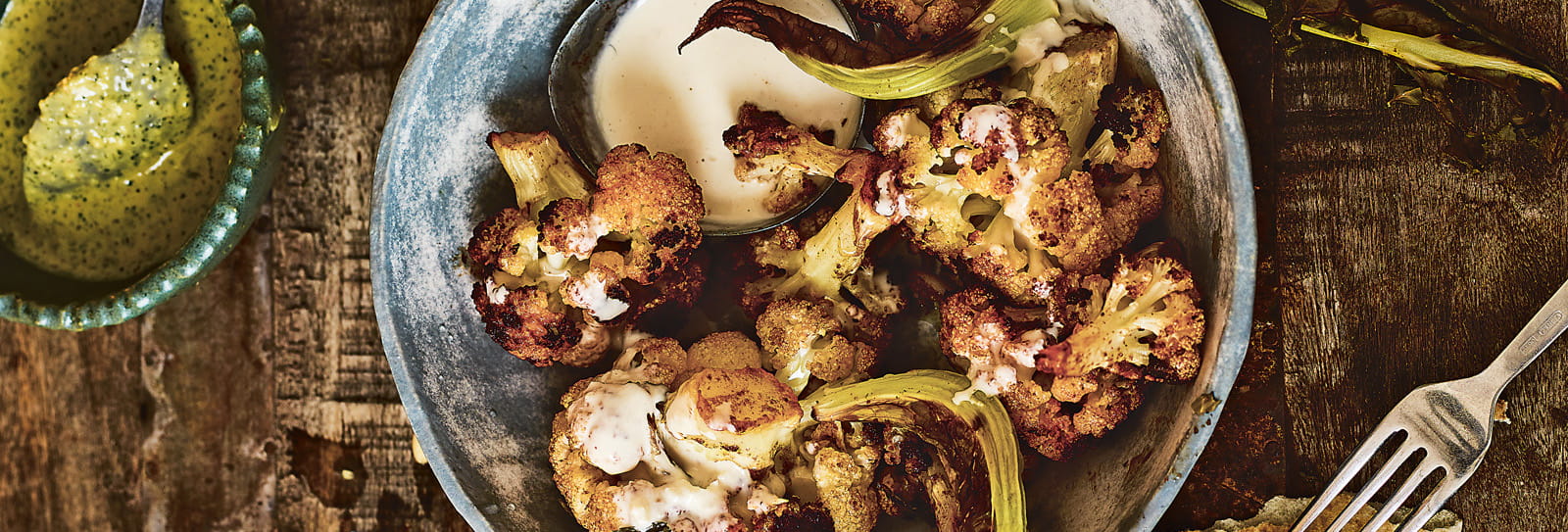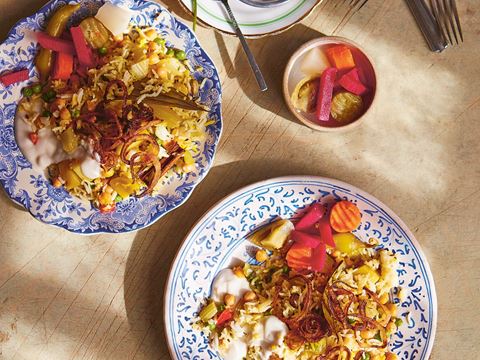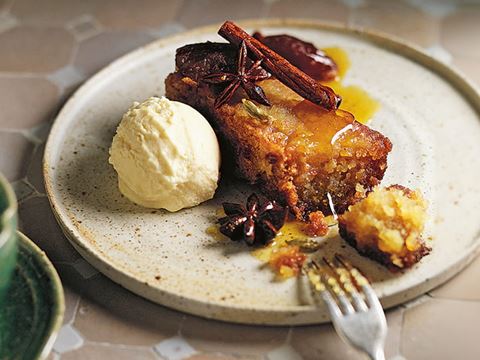
Street-Food-Style Spiced Cauliflower by Anas Atassi
Ma’aleh is usually deep-fried cauliflower, served in a sandwich with raw vegetables and tarator.
Ma’aleh is usually deep-fried cauliflower, served in a sandwich with raw vegetables and tarator.
Most Syrians eat cauliflower this way, but any vegetable can be made into ma’aleh—just deep-fry it and make a sandwich as described above. But in my opinion, my mother’s oven-roasted cauliflower is even better; it’s a perfect side dish or sandwich filling.
Preheat the oven to 220 degrees Celsius (425 degrees Fahrenheit).
On a large baking sheet, toss the cauliflower florets and its leaves with the olive oil, cumin, paprika and some salt. Bake for approximately 25-30 minutes, or until golden brown and just starting to char at the tips.
Take the cauliflower out of the oven, toss with the garlic, and bake for another 3 minutes.
Serve Zahra, street-food style, in a pita or flatbread sandwich, stuffed with fresh herbs and tarator, or as a snack or side dish with tarator dipping.
Reprinted with permission from
Sumac: Recipes and Stories from Syria
Anas Atassi.
Interlink Books, 2021.
interlinkbooks.com.
Anas Atassi was born in Homs, Syria, and now lives in Amsterdam. Every summer the entire family goes back to Homs to be together and celebrate the season. Good food continues to be an important part of that celebration, and Atassi has remained a lover of Syrian cuisine, which started his great love for cooking. Sumac: Recipes and Stories from Syria is his first cookbook.
You may also be interested in...

Recipe for Fennel and Potato Biryani
Food
Biryani is a whole and very elaborate genre of rice dishes, not be confused with pulao or pilaf.
Bake This Tasty Date, Orange and Olive Oil Cake by Shane Delia
Food
On one of famed chef Shane Delia's many trips to Morocco, some Bedouin men showed him how warming dates in olive oil before placing them in a tangine brings out the flavor of the caramel in the date, leading Delia to this recipe.
Warm Up Your Table With Sally Butchers Afghan Split Pea Soup (Dal Nokhod)
Food
This is one of those sneaky, apparently super simple dishes that actually has a ton of stuff in it.
